
You can help ensure your children get the vitamins they need by feeding them a balanced diet with a variety of foods. But some children may benefit from additional amounts of some vitamins, such as B6. If your doctor thinks more B6 would be good for your child, you'll want to give the right amount. If you can't find a chewable supplement, try crushing the vitamin and giving it to your child in a little applesauce or yogurt.
B6 Requirements
Children usually need only small amounts of B6 in their daily diet. The Food and Nutrition Board of the National Institutes of Medicine established Recommended Daily Allowances, or RDAs, for a number of vitamins, including B6. For children aged 1 to 3 years, the RDA is 0.5 mg per day. Children ages 4 through 8 need 0.6 mg daily, and children ages 9 through 13 need 1 mg.
B6 and Autism
Research suggests that children with autism don't process B6 well from foods and may benefit from supplements. In 1985 the journal "Biological Psychiatry" reported that giving unspecified large doses of B6 and magnesium to autistic children resulted in improved language skills and behavior, but a 2002 review was unable to find studies that verified this result. More research is needed to verify the effect of B6 on children with autism. Don't give your autistic child B6 without your pediatrician's okay.
B6 and ADHD
Some children with Attention Deficit Hyperactivity Disorder, or ADHD, may benefit from B6 supplements as well. A French study in 2006, in which 40 children diagnosed with ADHD were given B6 and magnesium supplements for eight weeks, showed improvement in the behavior of the children given the supplements after just two weeks. The children took magnesium along with the B6 because magnesium neutralizes some of the possible negative side effects of B6. In the study, the children were given 0.6 mg of B6 for every kilogram of their body weight, along with 6 mg of magnesium for every kilogram of body weight. If your child has ADHD, consult with your physician before adding B6.
Precautions
High doses of B6 can lead to pain and nerve damage. Don't give your child B6 supplements without your doctor's approval. For children, good sources of B6 include fortified cereals, bananas, chicken, turkey and potatoes. A medium baked potato has about 0.7 mg of B6, while a medium banana has 0.43 mg.
Related Articles
Selenium For Children

Zinc Treatment for Rosacea
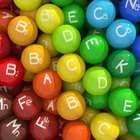
What Vitamins Help the Liver?

How to Reduce Acne Inflammation

Horsetail vs. BioSil

The Best Vitamins for Sinuses
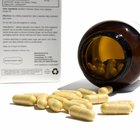
Nac & Hair Growth

Vitamins for Mental Alertness

Recommended Daily Dosage of Saw ...
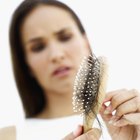
Is Zinc Good for Hair Growth?

Choline in Eggs

Ingredients in Hairfinity Vitamins

Peanuts Vs. Pistachios
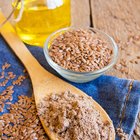
Flaxseeds for Hair & Nail Growth

Nutrition Information on Blueberries
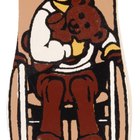
How Much Are Monthly Disability ...

What Foods Provide Calcium D-Glucarate?

Side Effects of Monosodium Glutamate

Why Is Seaweed Good for the Thyroid?

Arginine for Hair Growth
References
- "Biological Psychiatry"; Vitamin B6, Magnesium, and Combined B6-Mg: Therapeutic Effects in Childhood Autism; J. Martineau, et al.; May 1985
- "Journal of Alternative and Complemlentary Medicine"; Abnormally High Plasma Levels of Vitamin B6 in Chidren with Autism Not Taking Supplements Compared to Controls Not Taking Supplements; J. B. Adams et al.; January-February 2006
- Cochrane Database of Systematic RDeviews; Combined Vitamin B6 - Magnesium Treatment in Autism Spectrum isorder; C. Nye and A. Brice; 2002
- "Magnesium Research"; Improvement of Neurobehavioral Disorders in Children Supplemented with Magnesium-vitamin B6. I. Attention Deficit Hyperactivity Disorders; M. Mousain-Bosc et al.; March 2006
- Linus Pauling Institute at Oregon State University; Vitamin B6; Jane Higdon; February 2002
Writer Bio
Cynthia Myers is the author of numerous novels and her nonfiction work has appeared in publications ranging from "Historic Traveler" to "Texas Highways" to "Medical Practice Management." She has a degree in economics from Sam Houston State University.
Photo Credits
BananaStock/BananaStock/Getty Images